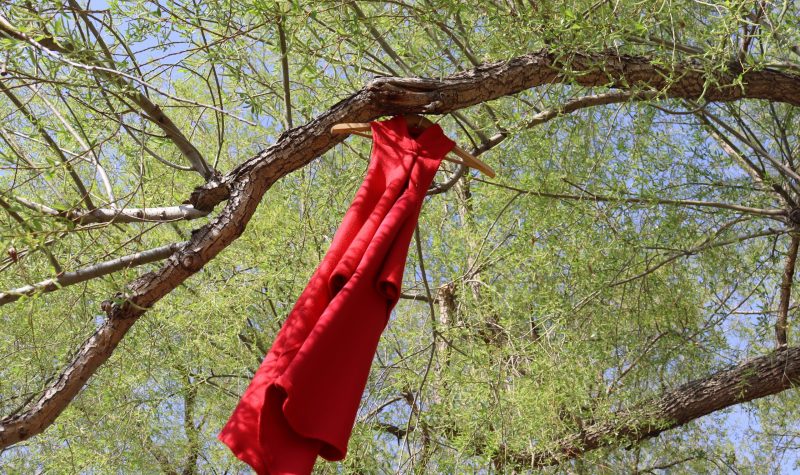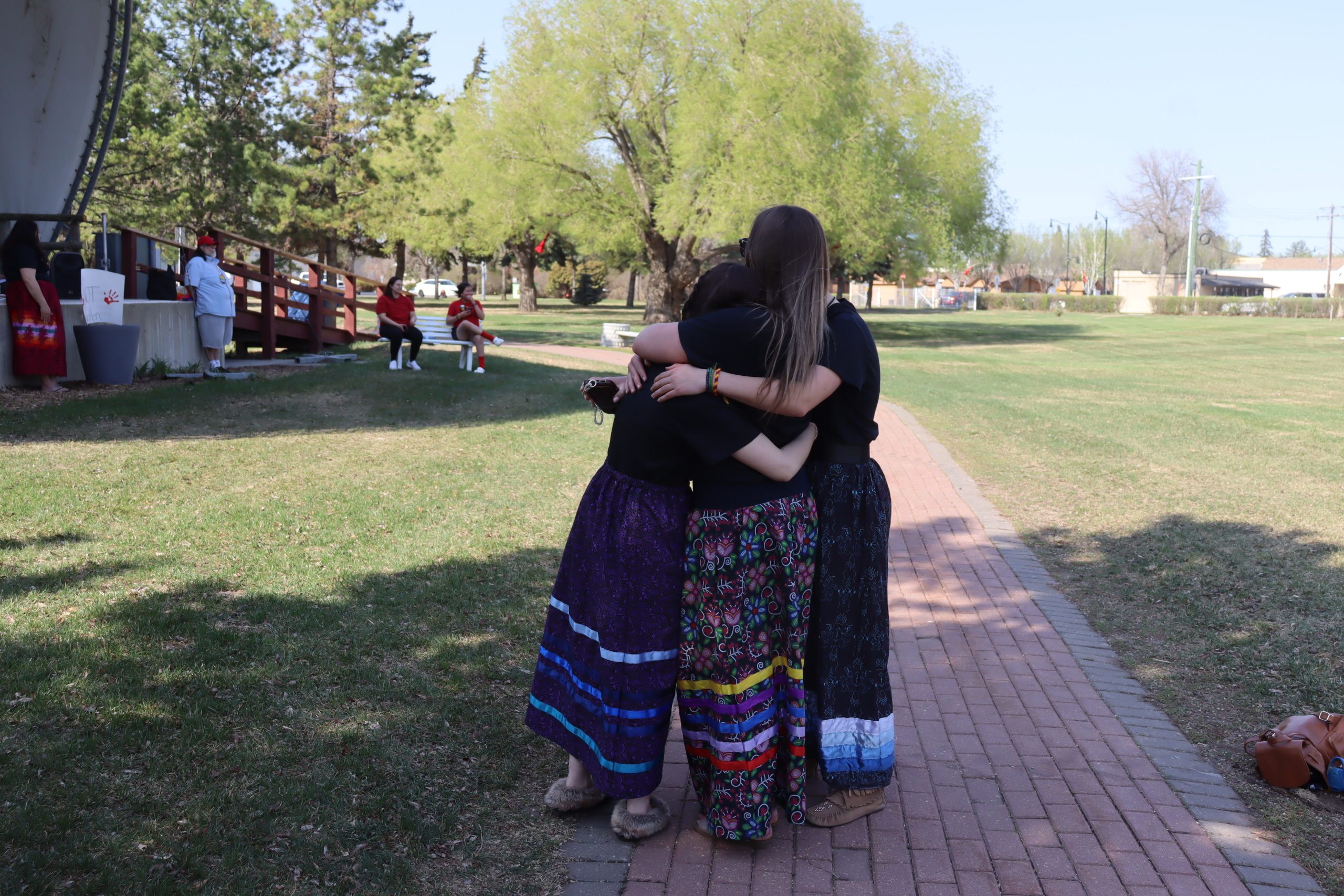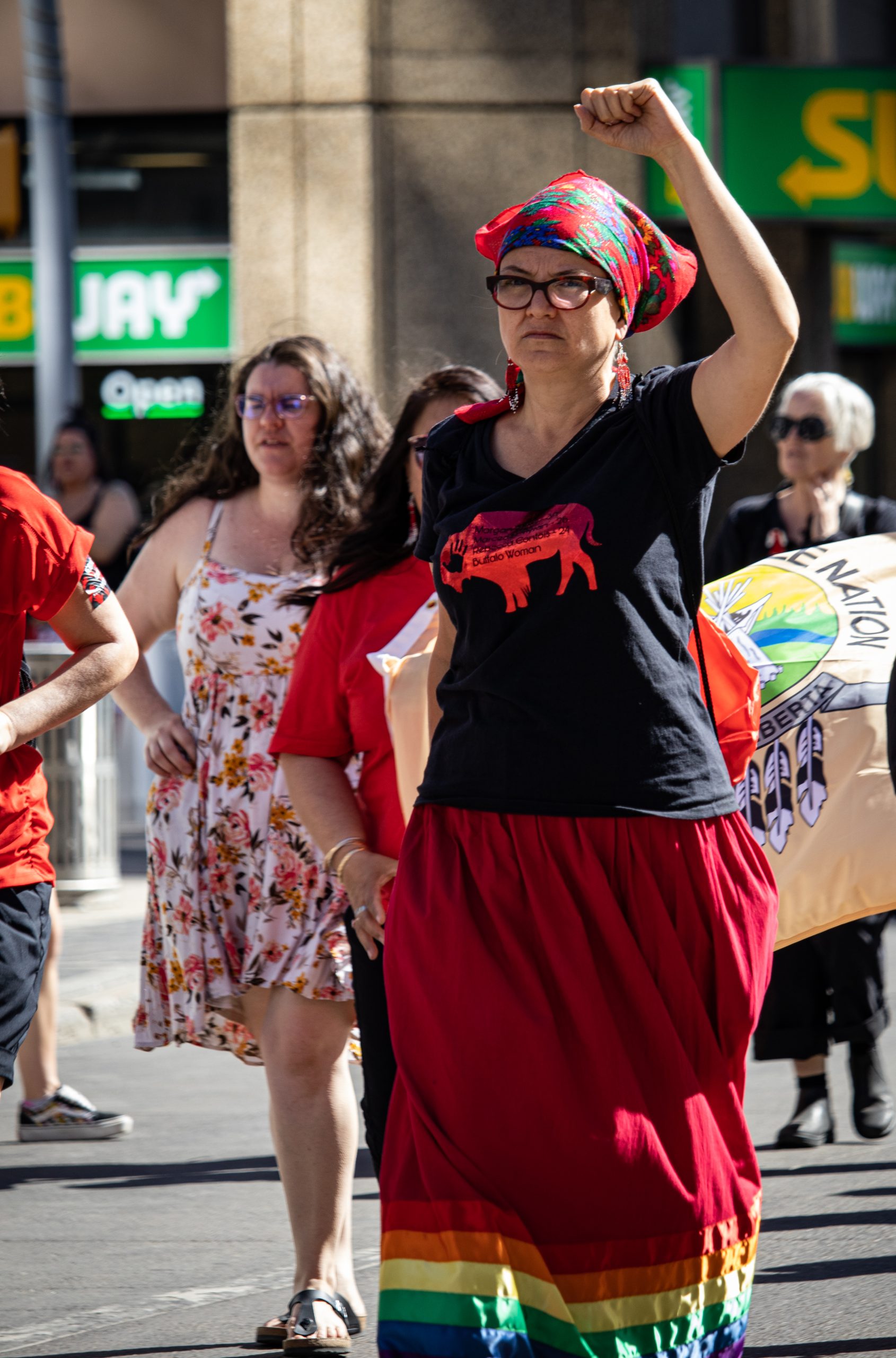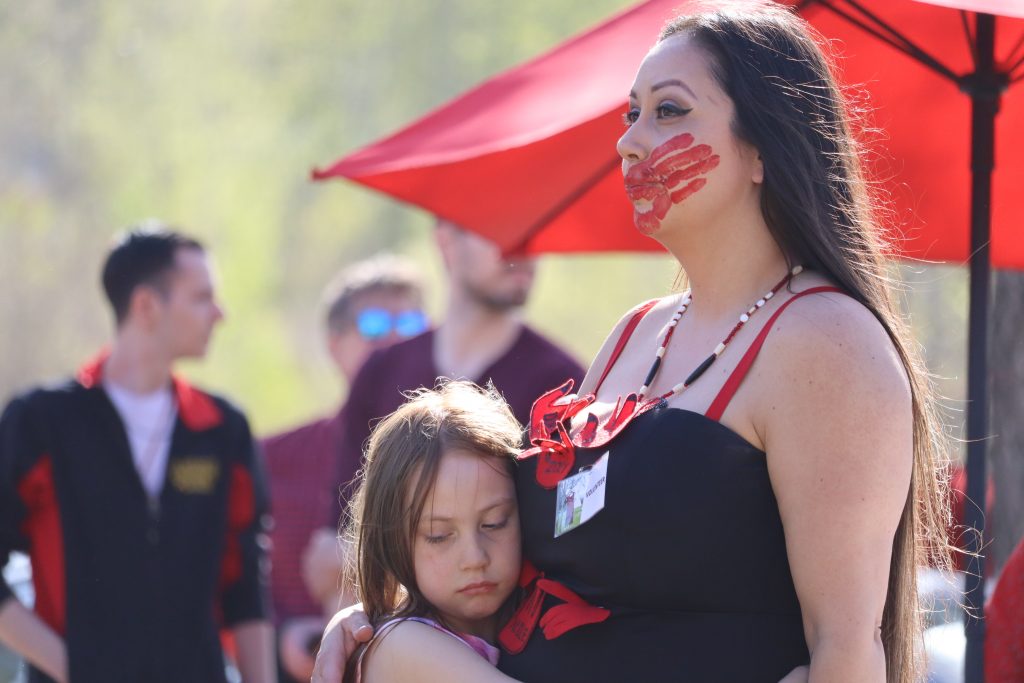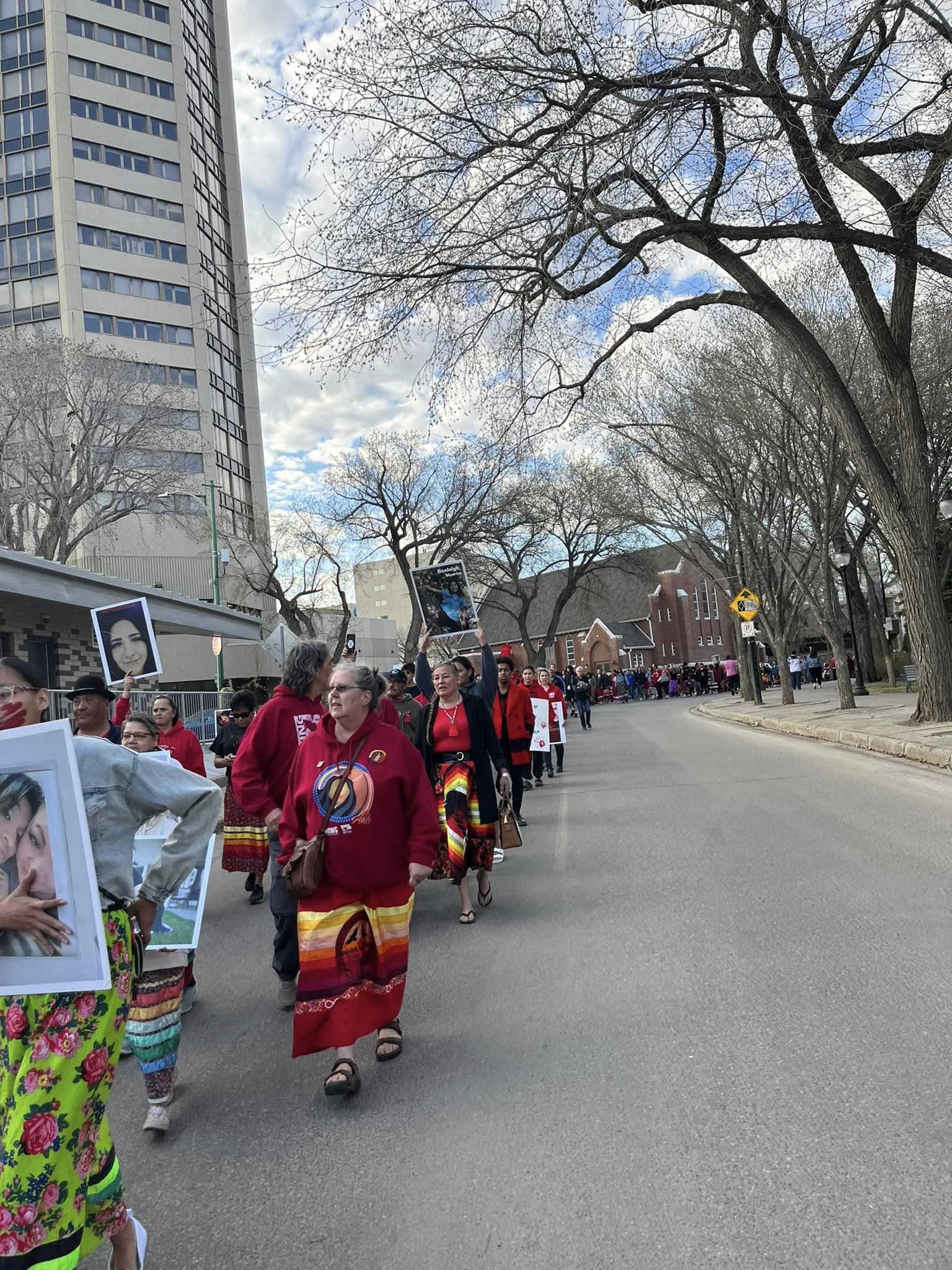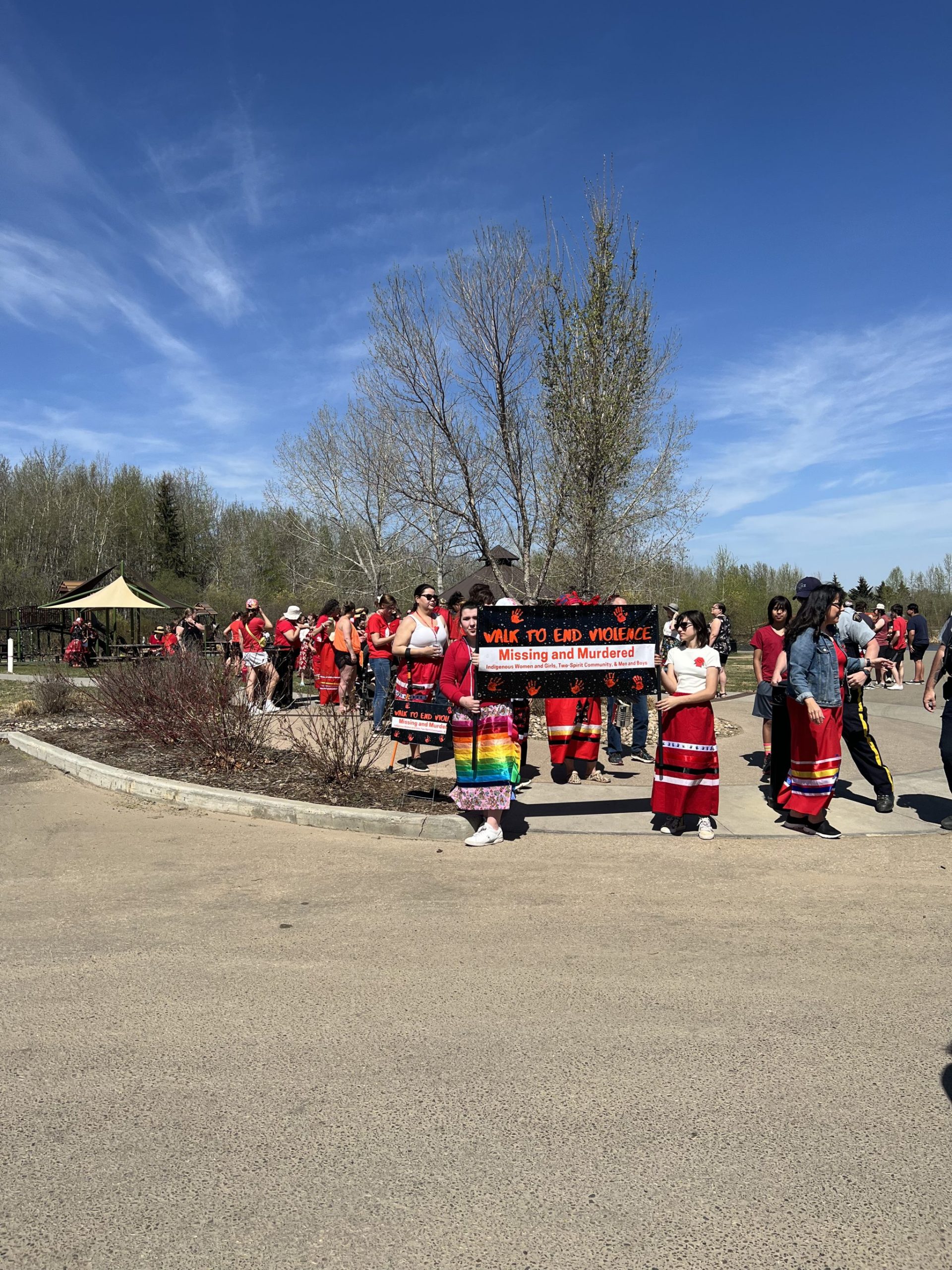On May 5, many municipalities around Alberta observed Red Dress Day, also known as the National Day of Awareness for Missing and Murdered Indigenous Women and Girls and Two-Spirit People.
The day brings awareness to the thousands of Indigenous women, girls and two-spirit people who have been subject to disproportionate violence all over Canada.
Red Dress Day was partly inspired by an art installation by Métis artist Jaime Black’s REDress Project, where she hung red dresses to represent the missing and murdered women. Red dresses have since become symbolic of the crisis because of her installation.
Many events were held across the province, where people would wear red, hang red dresses in parks, and march in solidarity for their loved one affected by violence.
At a Red Dress Day event and walk in Fort Saskatchewan Friday, Colleen Dollfusz, co-founder of the Indigenous Society of Fort Saskatchewan and the organizer of the event, spoke about what the evening had in store.
"We're going to be taking a walk from Legacy Park, up 99th Ave to 95th Street, then back to the park. We'll be honoring our missing and murdered Indigenous women and girls," Dollfusz said.
She also mentioned there would be food, blessing from elders, dancers, and special guests.
The guests consisted of Mayor Gale Katchur, some child powwow dancers, seven drummers, and other speakers to share their stories and insight to the crowd gathered in Legacy Park in Fort Saskatchewan.
When asked what Red Dress Day meant to her, Dollfusz said that there are a lot of women whose cases are being neglected.
"There is a huge number of women who are not being looked for. It's over 64 per cent of the Indigenous women population who have suffered, passed away, have gone missing, or have been assaulted in all different ways. Nothing has been done for it."
"I know a few women who have gone missing, and I've worked in the community...it's quite significant [to me]", she added.
Listen to the full CFWE interview with Colleen Dollfusz below:


